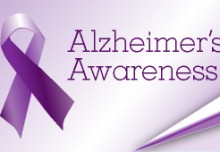 …and when to not say anything…read further. It seems like such a waste of talent…the energy and brains that scammers invest in finding new ways to bilk people of their money, and older adults are more susceptible than others. Let me start with that part first. Older adults more often get scammed, because they answer their phones, they tend to be more trusting and they have more liquid assets. Let me share the short version of a number of relatively new scams targeting seniors. For more details, please also go to the U.S. Federal Trade Commission web site (https://www.consumer.ftc.gov/scam-alerts ).
…and when to not say anything…read further. It seems like such a waste of talent…the energy and brains that scammers invest in finding new ways to bilk people of their money, and older adults are more susceptible than others. Let me start with that part first. Older adults more often get scammed, because they answer their phones, they tend to be more trusting and they have more liquid assets. Let me share the short version of a number of relatively new scams targeting seniors. For more details, please also go to the U.S. Federal Trade Commission web site (https://www.consumer.ftc.gov/scam-alerts ).
1. A Government program that will pay bills. The scammers have been selling this “government program” at places of worship. The scammers at first appear legitimate as they take enrollment information from enrollees. The first bills appear paid, but the scammers cancel the transactions and keep the funds. When the bill comes the next month, it will have late fees, and the scammers will have the credit card and personal identification and financial information of the enrollees.
2. The “good-looking” bad check. This one actually seems to go back to the faxes that used to come across from a Nigerian prince, but it is still being used. The scammer asks you to deposit a check for a substantial amount of money because they do not have access to their own local bank. But could you please write a check for a much smaller amount in the meantime? Well, by the time the check bounces, so does the scammer.
3. More taxing issues. With the tax filing deadlines approaching, some people will be approached by email or even conventional snail mail with notices that the government demands more. If the email has a link, do not click it; it may have malware or worse. If the written letter asks for a wire transfer, prepaid debit card, gift card or other form of payment than a check, it also likely is a scam. If the request is to make payment to I.R.S., that also is a scam, because Uncle Sam asks for checks to be made payable to the U.S. Department of Treasury.
4. I cannot hear you now. Sprint used to famously ask, “Can you hear me now?” Well, there are robocalls going out with the same question…do not say yes! Scammers will be recording your answer to be used later as confirmation in what may sound to be a legitimate solicitation that has your “yes” answer as the reply and that now will have a price tag associated with it. Don’t say anything!
How do you help protect your older loved one? Well, for phone callers, you can still request that their numbers be placed on the “no call” registry: 888/382-1222. To report suspicious activity, the Federal Trade Commission can be reached at the site I listed at the top of this post or called at 877/382-4857.
Charlotte Bishop is a Geriatric Care Manager and founder of Creative Care Management, certified professionals who are geriatric advocates, resources, counselors and friends to older adults and their families in metropolitan Chicago. Please email your questions to info@creativecaremanagement.com.







